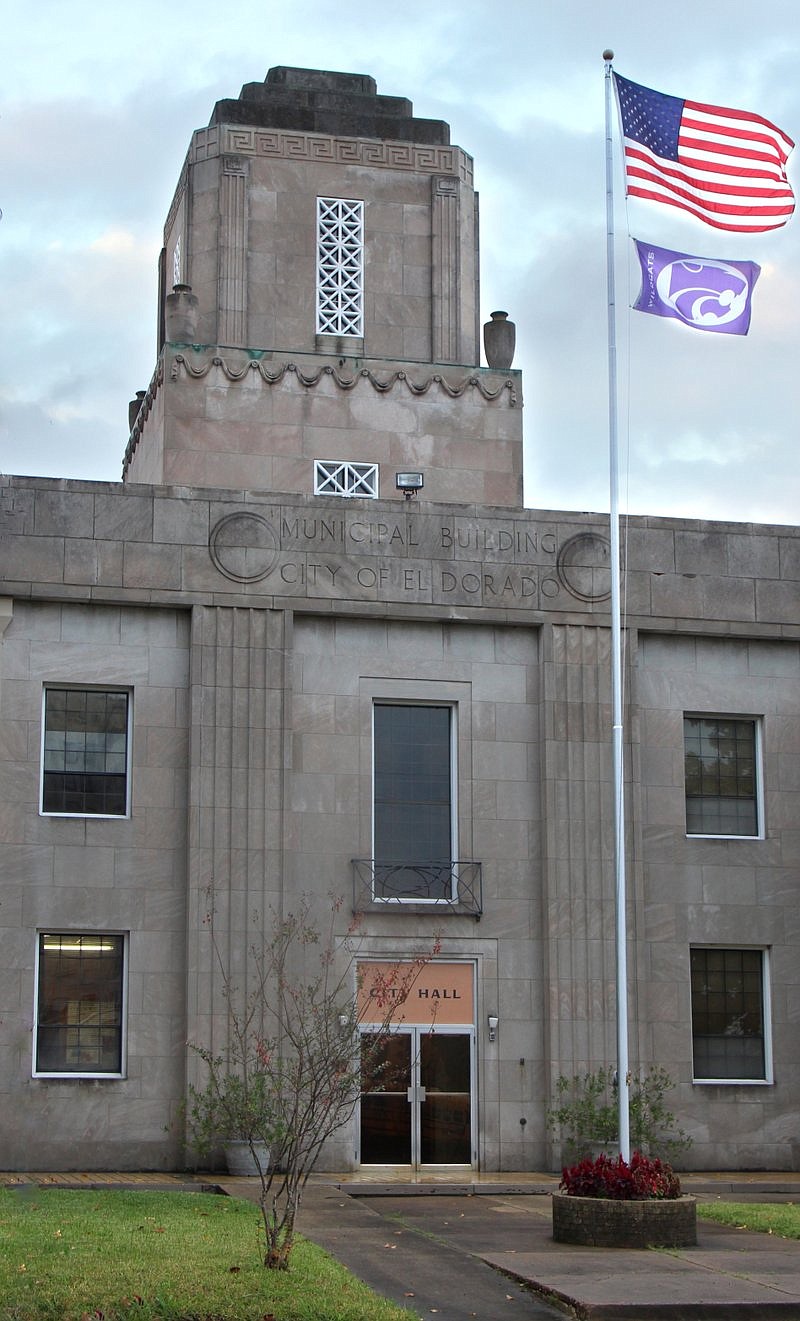Over the next two pay cycles, city employees should see temporary increases in their paychecks.
The El Dorado City Council approved Thursday two resolutions regarding premium and bonus pay for most city workers.
City officials previously agreed to allocate premium pay as a portion of more than $1.82 million in federal funding that was awarded as a part of the American Rescue Plan Act (ARPA) of 2021.
Mayor Veronica Smith-Creer applied for the funding on behalf of the city in June and the funds were disbursed in July.
The funds will be doled out to city employees in the form of premium pay for an amount of $1.25 for every hour they worked in 2020 when the coronavirus (COVID-19) pandemic hit.
Included in ARPA is the Interim Final Rule (IFR), which emphasizes the need for recipients of fiscal relief funding to prioritize premium pay for lower income, essential workers who were most affected by the pandemic.
The funding excludes elected officials, salaried employees and city employees who worked remotely in 2020.
Council Member Andre Rucks inquired about the total amount of premium-pay funds that will go to city employees and Vance Williamson, chairman of the Finance Committee, said he had not yet received the tally from all city departments, the heads of which recommended the premium pay of $1.25 an hour.
"But it's not going to nearly eat up all the money, correct?" Rucks asked.
Williamson answered no and affirmed a follow-up comment by Rucks who said there should be at least $1 million left from the ARPA funding.
Willamson also reminded Rucks that council members previously discussed potentially directing ARPA funds toward maintenance and improvements for the city's water and wastewater infrastructure.
Municipal "water, sewer, and broadband infrastructure" are among the permitted uses for the ARPA funds.
"And that would help to possibly decrease water rates going forward," Willimson said.
Smith-Creer said the city council will likely discuss other potential uses of ARPA money under federally-approved guidelines.
Added Council Member Willie McGhee, "But I thought it was a good idea -- ..., so we won't have to increase water rates -- to use the money to help our citizens. That's a plus y'all."
Rucks then inquired about incremental rate increases the council previously approved for the El Dorado Water Utilities.
A rate study that was conducted in 2019/2020 by Raftelis -- a utility and public-sector consulting firm that focuses on finance, organization and technology, including water and wastewater rate studies, cost analyses and financial and strategic planning -- recommended annual rate increases of 2% on the water side and 12% on the wastewater side.
A bond issue will be necessary for a major, multi-million-dollar improvement project for the city's two, aging wastewater treatment plants (WWTPs).
The financial outlook presented by Raftelis covered the next 10 years but the firm and Lorraine Murtha, EWU engineer, and the Water Advisory Board agreed that re-assessing the situation within three years would provide a clearer picture for the next decade.
The rate increases that were recommended by Raftelis were approved by the city council in early 2020 to provide more funding to keep up with the everyday maintenance, operation and repairs of the city's water and wastewater infrastructure.
EWU customers also see an annual cost-of-living increase in their water bills.
On Thursday, Public Works Director Robert Edmonds explained that ARPA funding will help satisfy a municipal bond that will be needed to cover the cost of the WWTP project.
"It's not a project that we want to do. It's a project that the federal government is telling us that we have to do," Edmonds said. "It's (the ARPA funding) is going to help some but construction costs are getting more expensive."
He later explained that the rate structure Raftelis recommended was based on estimated construction costs of $28 - $30 million.
"But what's happened over the last eight months that nobody could forecast was construction costs have doubled and even tripled," Edmonds said.
He said the design phase of the WWTP project is nearly 60% complete.
"When we get to the 60% point, we can start actively getting some pricing on different components of the project. We have a bit more to do before we can start digging," Edmonds said.
During the city council meeting Thursday, Smith-Creer said the city will receive the same amount of ARPA funding in 2022, stressing there are stipulations to how the money may be spent.
The council also approved Christmas/end-of-year bonuses for employees who are on the city's payroll, as of Thursday.
The council followed the same pay structure for Christmas bonuses over the past few years, including:
• $50, for those who have been employed by the city six months or less.
• $100, for those who have been employed by the city seven months to a year.
• $200, for those who have been employed by the city one to two years.
• $250, for those who have been employed by the city three to four years.
• $500, for those who have been employed by the city five to seven years.
• $1,000, for those who have been employed by the city nine years or more.
Williamson asked that the premium pay be included in city employees' next paychecks and that checks for Christmas bonuses be cut by Nov. 19, the week before Black Friday.
McGhee made the request during a Finance Committee meeting on Oct. 12, noting that the bonus checks were delayed last year to a change in the city's accounting software.
Council Member Judy Ward said the council typically approves the bonuses so that employees may receive them in time for Black Friday.
The checks were not processed until early December in 2020.
Williamson said he will work with Emrich and Scroggins, LLC, the city's acting treasurer, to ensure the premium pay and holiday bonuses are processed.
